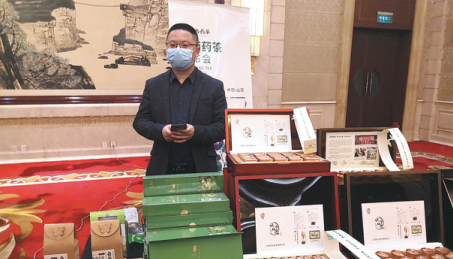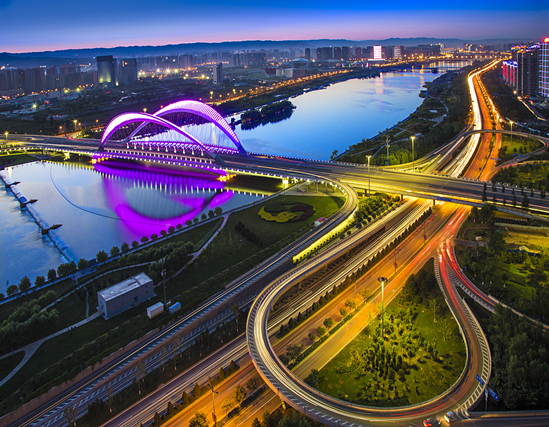Restorative teas to brew up wealth in rural areas
Updated: 2020-03-27

A medical herb farm in Nanliang township in Yicheng county. [Photo by Hu Bo for China Daily]
Authorities in Shanxi have pinned high hopes on herbal teas to revitalize the rural economy in the province.
Lou Yangsheng, Party secretary of the province, and Shanxi Governor Lin Wu attended a promotional fair for local herbal teas in Tiayuan on March 20, where local products were showcased to consumers at home and abroad.
Lou, who calls himself a "branding envoy" for Shanxi's herbal teas, said the products which have local geographic indications should be promoted to more people as they are "good for health and conducive to a high quality of life".
"The production of the teas is based on the selection of genuine medical herbs growing in Shanxi and time-honored techniques that require great human efforts. And the preparation of the teas represents an art form that is similar to the traditional tea ceremony popular in China and Japan," Lou said.
The Party chief said developing the herbal tea industry, which is expected to become one of the pillars of rural economy in Shanxi, is of great significance in boosting rural growth and helping farmers increase incomes.
The Shanxi Herbal Tea Industrial Alliance was established during the fair. Governor Lin unveiled the plaque for the association.
The alliance will be responsible for the promotion of herbal tea products, drafting industrial standards and helping members register their trademarks and design corporate identities, according to officials of the alliance.

A business representative displays his herbal tea products during a promotional fair in Taiyuan. [Photo/China Daily]
Lou said he is confident of the market potential of the tea products of Shanxi because it has a long history and many health benefits.
"The history of Shanxi herbal teas can be traced back to the Red Emperor or Shennong, the legendary emperor who pioneered China's farming and medical industries," Lou said.
It is said that Shennong tasted more than 100 herbs to determine which can be used for curing illnesses. In this practice he was poisoned by some toxic plants but his life was saved by drinking certain herbal teas.
Wang Cheng, vice-governor of Shanxi who was also at the promotional fair, said in Shanxi, as the homeland of Shennong, herbal teas have been brewed and drunk for thousands of years.
Cities like Changzhi, Jincheng and Linfen are traditional bases for herbal tea production.
The production of herbal teas in Shanxi shares some similarity with traditional tea making in the rest of the country, including such techniques as drying, baking and fermenting.
However, unlike traditional teas that use tea leaves as their ingredients, many parts of herbs, including leaves, fruits, stems and roots can be used for making herbal teas in Shanxi.
Some of the herbal teas can help clear away heat and toxic substances, while others are good for immunity, sleep or digestion, according to Wang.
Shanxi's herbal teas are made using such herbs as sea buckthorn, wolf berry, mulberry and chrysanthemum.
According to Qiao Jianjun, chief of the Shanxi Agriculture and Rural Affairs Department, there are more than 100 enterprises engaged in the production of herbal tea products, with more than 220 varieties sold both domestically and overseas.
Guo Yanjie contributed to this story.



